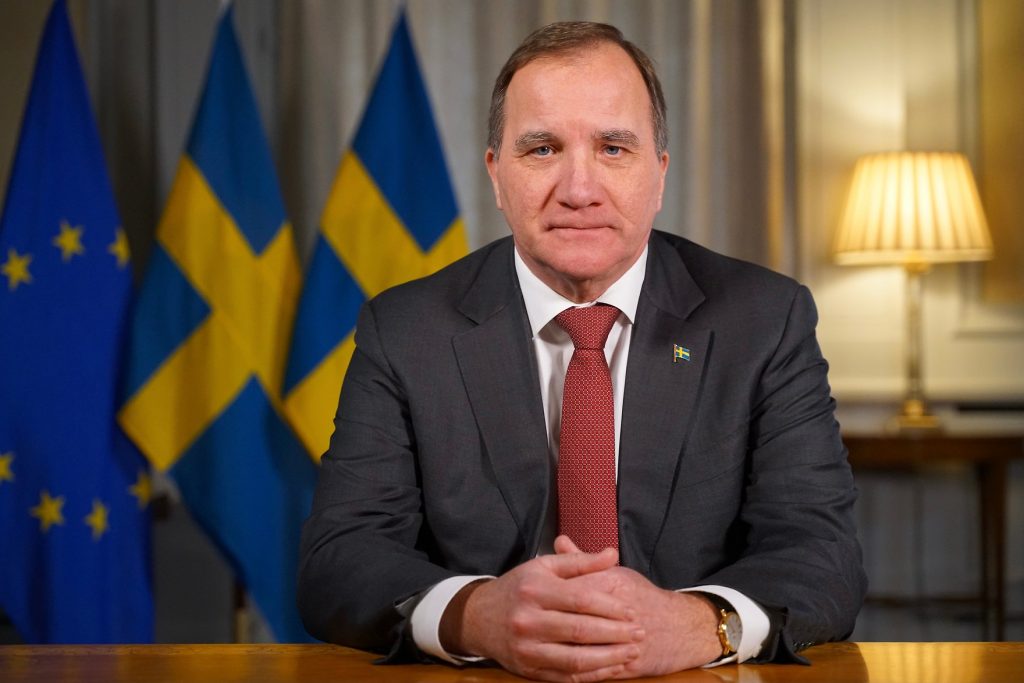
image: socialdemokraterna.se
Löfven has most likely managed to pull together the votes to be reinstated as Prime Minister, and will even likely remain so until the next general election in the fall of 2022.
There have been a lot of hiccups, and perhaps some more will come along. However, Löfven has got to be feeling pretty confident right now. Kakabaveh can be handled, the Green party with whom he shares the government has said they’ll vote green for him, and Center party’s latest demands aren’t something that can’t be massaged into palatability.
Kakabaveh has not yet said she has been placated. Kakabaveh gave Löfven a list of demands to get her vote, and they were all heavily left of center. However, most of them can be fobbed off with promises of putting together a committee to look into the matter. For Kakabaveh, a right-leaning government would be even worse, so she is likely to go along with giving Löfven her tacit support and vote with the yellow card.
In a press conference today, Center said that they will vote with a yellow card as well. In return, the Löfven government, she said, has gone along with three of Center’s, frankly, watered-down demands:
- making into law the changes in employment regulations (LAS och omställning – in which, among other things, the last-in first-out rule was relaxed)
- less restrictive rules on shorefront building (försvagning av strandskyddet), and
- that landowners (we’re talking in particular about forest owners) will have more control over how they manage their own property (förstärkt äganderätt för skogsägare)
The twist here is that the Green party, a party that together with the Social Democrats officially forms the government, has absolutely not gone along with these three conditions that the Center party claims “the government” has gone along with. In an interview after Center party’s press conference, Green party co-leader Marta Stenevi said that the Green party was not at all behind these concessions. In fact, they are supposedly red lines for the Green party. Yet, Stenevi said that the Green party will vote red to a Kristersson (Moderate party) government and will vote green on Stefan Löfven for Prime Minister. They say yes, she continues, to a Green, Center, Left and Social Democrat constellation, but a big no to what the Center party says they have an agreement on with the government.
What does this mean!?! Almost nothing. The Green party has historically twisted itself into so many configurations to match the space allowed for them in a government coalition, that it is unlikely in the extreme they will stop a Löfven-led government from returning to power. The bottom line is that although she says no to these supposedly agreed-upon demands from Center, she won’t vote against reinstating Löfven.
Löfven has therefore 175 votes – if not positively for him (green), then at least not against him (green and yellow together, versus red) and that is all that matters.
But wait, there’s more
However, there is potentially a little, little spanner in the works, and that is the budget that needs to be passed in December. But it likely won’t be important. Here goes:
Center’s position, from the beginning, has been that the Left party may not in any way be a contributing partner in budget negotiations. However, what fikas the Social Democrats have with Left party members at the lower levels where the budget is actually hammered out, is not something that Center is going to police. If the Social Democrats and the Green party present a budget (for which they earlier have gotten the Left party’s acceptance) then Center can most likely go along with it.
And even if one of the Löfven-cooperating parties doesn’t go along with the budget, who cares? Löfven has promised to call for new elections if his budget doesn’t pass. The budget comes up for a vote in December. If the government falls over the budget, an election would have to be held latest March. The next general election is in the fall, about six months later. No one – really, no one – wants to have two elections in a six month period. Ergo, no party that doesn’t vote against Löfven now is going to vote to bring down Löfven then. Löfven wins! He gets his government and he gets his budget.
Who knew that the two extreme parties, the Left and the Sweden Democrats, could work so well together for the Social Democrats? Did Center? Not a chance. But did the Social Democrats? Who knows? It’s brilliant, though.







